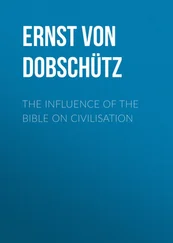When we come to Samson, however, we learn far more. His name literally means ‘sunshine’. He was brought up as a Nazarene, which meant that he was not allowed to take alcohol or cut his hair. It is an extraordinary tale of a man who had trouble with women. He married, but his marriage broke up before the honeymoon. He moved on to a nameless prostitute before finally joining with a mistress called Delilah. Although having great physical strength, Samson was actually a weak man. His weakness was not primarily his relationships, but stemmed from a weakness of character. His charismatic anointing enabled him to accomplish many amazing feats of strength, but then the Spirit of the Lord departed from him. He was captured by the Philistines, blinded and put on a tread-mill, the laughing stock of the Philistines.
Many years ago I preached a sermon called ‘Samson’s hair is growing again’. It became well known and one young woman who heard it wrote a poem about the blind Samson being led by the little boy to the pillars of the temple, where he pulled the whole temple down.
The boy who held his hand
They gouged them out,
At first
I could not bear to look:
Empty and raw and cruel.
I would not look:
The shock of emptiness,
Knowing that he would not see.
I watched the shaven head bowed low
Rocking with the rhythm of the grindstone.
Round. Round. Round.
I watched the needless shackles:
Heavy and hard,
Biting the flesh that needs no binding.
Now
It does not matter that his eyes are gone:
I am his eyes,
He sees through me.
He has to see through me, there is no other way.
And I have wept the tears he cannot weep,
For all those careless years.
And I have learned to love this broken man,
While he has learned at last to fear his God.
So
I am not afraid to die:
Happy to be his eyes this one last time.
Taking his hand,
Leading with practised care,
Step by guided step
Into the place where he can pray,
‘Lord,
O Sovereign Lord.’
And as the pillars fall, I cry
‘Amen.’
In his last five minutes Samson did more for his people than he had done in all the years of his life.
HUMAN WEAKNESS
The Bible is always honest about the failings and weaknesses of the individuals it describes and Judges is no exception. The characters in the book reveal a number of flaws: Barak was not manly; Gideon was fearful, constantly asking for signs, and towards the end of his life made a gold ephod, a priestly ‘pullover’, which later proved to be a ‘snare’ to Israel, a relic which had become an object of devotion. Jephthah was the son of a prostitute who made a reckless vow; Samson treated his wife poorly, slept with a prostitute and took a mistress. They were not strong characters, nor were they holy people, yet God used them!
DIVINE STRENGTH
How did these less than perfect people manage to achieve so much? It was not through their own power. Their secret was that the Holy Spirit came on them – they were all ‘charismatic’ people.
Judges gives us vivid examples of divine strength working through weak people, as we read how these individuals were able to perform supernatural feats. Samson was perhaps the most graphic example of this, but there are many amazing stories. This is an especially important point to note, because the anointing of the Holy Spirit only comes on a few in the Old Testament. In Judges such anointing was experienced by just 12 people out of the 2 million who populated Israel at that time. We note too that the Holy Spirit comes on them temporarily, not permanently: for example, the text states that the Holy Spirit left Samson. In the Old Testament it was an anointing Spirit that touched them for a time rather than an indwelling Spirit who stayed with them.
WHAT WERE THE JUDGES?
Our consideration of some of the individual stories of the judges has omitted an important question. What exactly were the judges? Who were they and what did they do?
In English they are called ‘judges’, but this expression does not really capture the essence of the word originally used to describe them. When we read that Samson ‘judged’ Israel, or that Gideon ‘judged’ Israel, the idea behind the Hebrew expression is that they were ‘troubleshooters’ who saved the people of God from themselves and others. They are never given a title as such, but are described in terms of what they did. Indeed, the only person to whom the noun is applied in the book of Judges is God. He is the Judge, sorting out their problems. It would therefore be more correct to say that God is the rescuer or troubleshooter who operates through these heroes, by his Spirit, for the benefit of the people.
They are concerned with justice within the nation, but mainly with external problems, since the people are surrounded by hostile nations who attack them at various times: the Ammonites (three times), the Amalekites (twice), the Moabites (once), the Midianites (once) and the Philistines (three times). There is also specific mention of the Kings of Jericho, Moab and Hazor.
The people of God had come into a highly populated area, to peoples largely hostile to their presence. They were perceived as invaders. The only justification for them being in that land at all was that God had given it to them, and they were to exact punishment on the resident population by wiping them out. Thus the book is not just about individual heroes – or the study of personalities, the first level of history described at the beginning of this chapter – but whole peoples too – the second level of history.
National history
If you add together all the years that the 12 people mentioned above judged Israel, they come to 400, but the book of Judges actually covers only 200 years. How can this be so?
GEOGRAPHICAL
This problem is easily resolved when we realize what the judges are actually doing. When we read about Gideon and Samson we tend to think that they were delivering the whole nation, but Israel was now divided into groups of tribes, spread over a wide area roughly the size of Wales. Therefore, when we read that a judge ruled for 40 years, it may only apply to tribes in the north. Another judge may have been saving a situation in the south at the same time. Samson, for example, delivered the southern tribes and Gideon the northern ones.
POLITICAL
At this time there was a leadership vacuum within Israel. Moses had led them out of Egypt, Joshua had led them into the Promised Land, but with both these great men dead, there was no figurehead for the nation – bearing in mind that this was before the days of the monarchy. Thus the judges were local leaders, commanding the loyalty of groups of tribes, but not uniting the whole nation.
MORAL
There was a moral reason why the tribes were continually facing opposition from other nations and people groups, and this is the heart of the book’s message. The structure of the book makes this clear, as we shall see if we look at a brief outline of it. It divides very clearly into three parts.
1. Inexcusable compromise (1–2)
(i) Allowances
(ii) Alliances
2. Incorrigible conduct (3–16)
(i) Sedition by the people
(ii) Subjection by an enemy
(iii) Supplication to the Lord
(iv) Salvation by a deliverer
3. Inevitable corruption (17–21)
(i) Idolatry in the north – Dan
(ii) Immorality in the south – Benjamin
In Section 2, the four stages of the cycle are repeated seven times. The book finishes with a statement that has actually been the refrain throughout: ‘There was no king in those days, every man did what was right in his own eyes.’
1. Inexcusable compromise
(I) ALLOWANCES – VULNERABLE VALLEYS
Читать дальше











